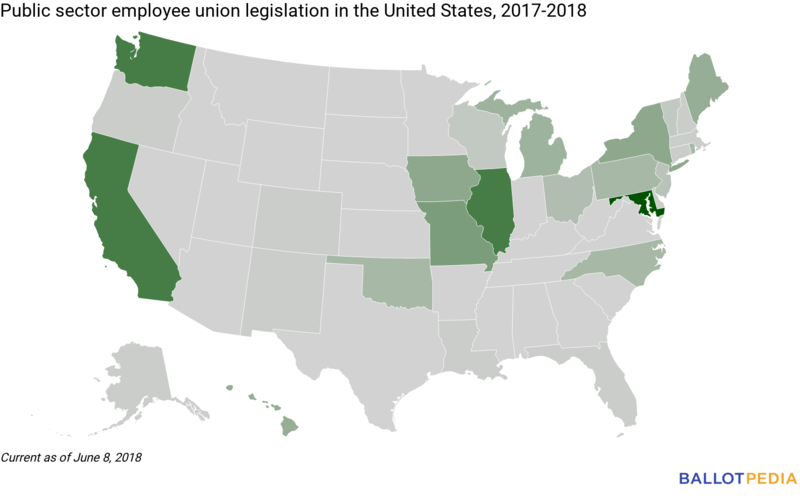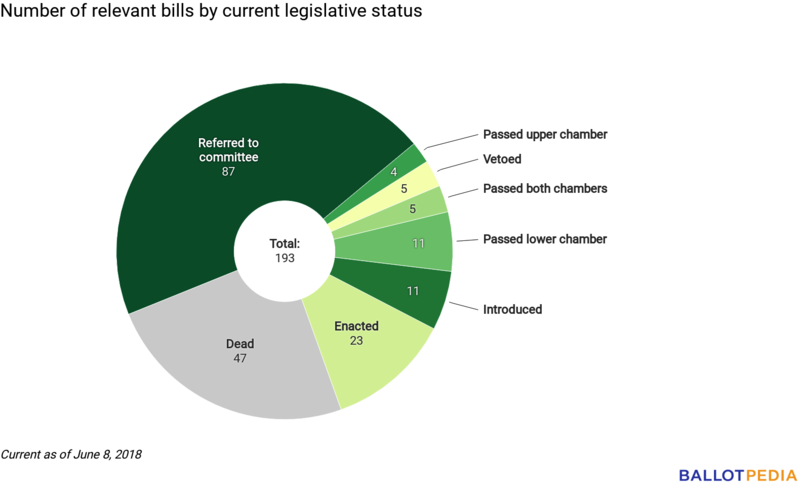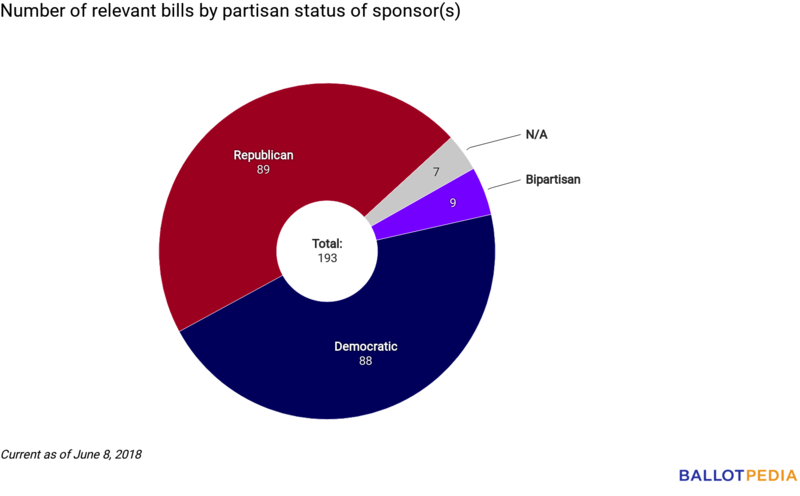Union Station: June 8, 2018
According to the Bureau of Labor Statistics, unions represented nearly 8 million public sector workers in 2017 -- 37.9 percent of the total public sector workforce. Of this total, 7.2 million were union members; the remaining employees were non-members represented by unions. Conversely, unions represented 7.3 percent of private sector workers. The high rate of public sector unionization gives those unions considerable political influence at the local, state, and federal levels.[1]
The Supreme Court of the United States is poised to issue a decision in Janus v. American Federation of State, County, and Municipal Employees (Janus v. AFSCME), a case challenging the constitutionality of public sector employee union agency fees (i.e., fees required of non-members to cover the costs of non-political union activities).
Agency fee opponents say requiring such fees violates individual worker’s First Amendment associational rights. Fee proponents argue they are necessary to support the costs associated with representing non-members.
In anticipation of this ruling, state legislatures have begun considering bills relating to public sector employee unions. In this newsletter, Ballotpedia will track those bills, highlight national legislative trends, and provide a sampling of commentary surrounding the subject.
What people are saying
In opposition to Janus:
| “ | Now, public-sector union workers wait to see what the Court’s decision will be in Janus v. AFSCME, a so-called 'right to work' case. The ruling could impact nearly 17 million public-sector workers — blue-collar school employees, teachers, postal carriers, police officers, firefighters and others.
The Janus v. AFSCME case is backed by corporations and wealthy special interest that have a goal of hurting unions and keeping working people from organizing for better wages and having a voice on the job. Union members are the foundation of our communities. These are the hardworking men and women that support our area businesses and churches."[2] |
” |
| —Ray Jackson, in an op-ed for The Philadelphia Tribune | ||
In favor of Janus:
| “ | Oregon public sector union leaders say they are optimistic their unions will remain strong no matter what the U.S. Supreme Court decides in an upcoming ruling on collecting fees from nonmembers.
If that's true, why haven't the unions been leading the way to stop automatic collections from workers who don't want to be represented? The answer is easy. Compulsory collections fatten union power, and the unions don't have to work as hard to prove their worth. [Unions] should have to earn contributions. The payments should not be coerced. No workers should be mandated by the government to pay for political speech they do not want as a condition of employment.[2] |
” |
| —Editorial Board, The Bulletin, Bend, Oregon's daily newspaper | ||
What we've been reading
Below is a sampling of the news articles and commentary relating to public sector unions that we've been reading:
- Education Week, "Unions After Janus: Fewer Members, Less Money, and More Teacher Voice?" June 7, 2018
- Washington Examiner, "California Democrats try to shield unions from potential Janus fallout," June 6, 2018
- The Hill, "Supreme Court may give workers a choice, but unions still have a critical choice as well," June 6, 2018
- LA School Report, "Exclusive: California Teachers Association projects 23,000-member loss in wake of Supreme Court ruling and slashes its budget," June 5, 2018
- PennLive, "When it comes to paying union dues, public employees deserve a choice," June 5, 2018
- NJ Spotlight, "Op-ed: Supreme Court Can't Break the Will of American Workers and Their Unions," June 5, 2018
- Roll Call, "Unions Brace for Pivotal Court Decision Amid Politicking," June 4, 2018
The big picture
Number of relevant bills by state
As of June 8, 2018, we are tracking 193 pieces of legislation dealing with public sector employee union policy. On the map below, a darker shade of green indicates a greater number of relevant bills. Click the map for complete information.
Number of relevant bills by current legislative status
Number of relevant bills by partisan status of sponsor(s)
Recent legislative actions
Since last week, the following major legislative actions occurred:
- One bill was enacted
- Missouri: HB1413
- One cleared a lower chamber
- Rhode Island: H7377
- Two bills have cleared both chambers but have not yet been enacted:
Below is a complete list of legislative action on relevant bills in the past week. Bills are listed in alphabetical order, first by state and then by bill number. Because some state bill tracking systems are not updated in real time, some action may have occurred more than a week ago.
- California AB2886: This bill would allow Orange County Transit District employers and employees "to adjudicate complaints of specified labor violations before [the Public Employment Relations Board as an unfair practice and would authorize specific parties aggrieved by [the board's] decision or order to petition for relief from that decision or order."
- On June 11, 2018, this bill will be considered at a meeting of the Senate Comm. on Public Employment and Retirement.
- Illinois SB2838: This bill would prohibit a school district from using a recruiting firm to hire substitute teachers in the event of a teachers' strike. This bill would also permit a substitute teacher recruiting firm to enter into an agreement with a labor organization that has a collective bargaining agreement with a school district.
- On May 31, 2018, the Senate concurred to House amendments to the bill and now awaits the governor’s signature.
- Missouri HB1413: This bill would ban employee payroll deductions for union dues, agency shop fees, or other fees levied by a public labor union unless such deductions are authorized in writing by the employee on annual basis.
- On June 1, 2018, this bill was signed into law by the governor.
- New York A08006: This bill relates to "employees classified as the Triborough bridge and tunnel authority superior officers benevolent association of an MTA-employer and the resolution of disputes in the course of collective negotiations."
- On June 6, 2018, the Senate passed an amended version of the bill and returned it to the Assembly.
- Rhode Island H7377: This bill would authorize municipal police unions to refrain from representing employees in grievance/arbitration proceedings if those employees were not members of the collective bargaining unit within 90 days of the event precipitating grievance/arbitration proceedings.
- On June 5, 2018, a substitute bill cleared the House.
See also
| |||||||||||||||||||||||
- ↑ Bureau of Labor Statistics, "Union Members — 2017," January 19, 2018
- ↑ 2.0 2.1 Note: This text is quoted verbatim from the original source. Any inconsistencies are attributable to the original source.





